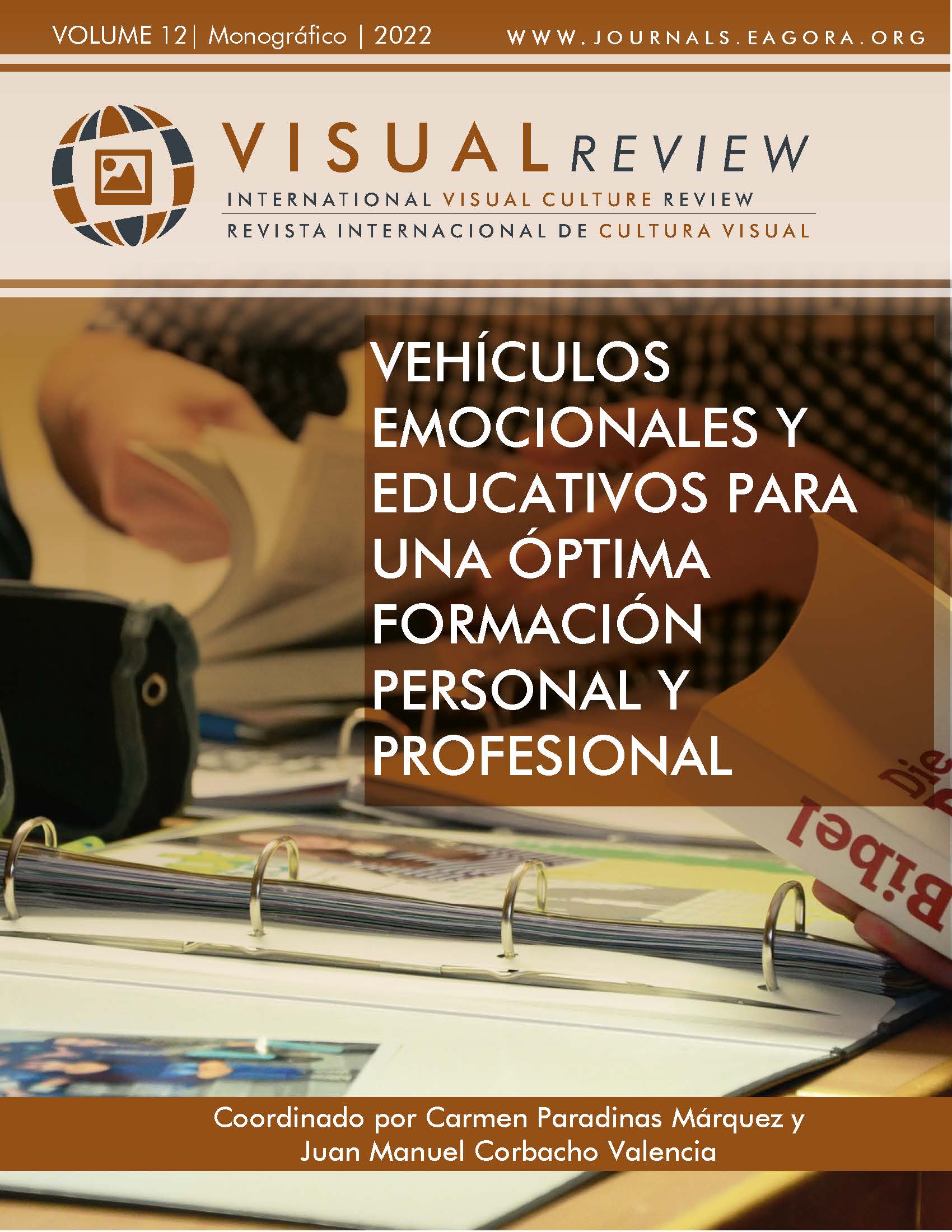Logical thinking and computational programmatics in engineering students
DOI:
https://doi.org/10.37467/revvisual.v9.3784Keywords:
Thought, Logical Thinking, Computational Programmatic, Communication, Teaching Engineering, Engineering studentsAbstract
The purposes of studies on computational logical thinking foresee that it is possible, through experiment work, to do research on previous skills of logic and mathematics in engineering students, by using packages of software and applications and supporting these students in parallel. It was possible that teachers achieved impact by using co-creation, and, since their work was collaborative, this showed leadership, motivation, and guidance. By using computer programming and analytical tools integrated into the capacities of students, this not only allowed collaboration, but also development and progress for building their own knowledge, in a process according to the pedagogical theory of constructionism.
Downloads
Global Statistics ℹ️
|
934
Views
|
868
Downloads
|
|
1802
Total
|
|
References
Chan, S.-W., Looi, C.-K., Ho, W. K., Huang, W., Seow, P., & Wu, L. (2021). Learning number patterns through computational thinking activities: A Rasch model analysis. Heliyon, 7(9), e07922. https://doi.org/10.1016/j.heliyon.2021.e07922 DOI: https://doi.org/10.1016/j.heliyon.2021.e07922
Disessa, A. A. (2004). Metarepresentation: Native competence and targets for instruction. Cognition and instruction, 22(3), 293-331. DOI: https://doi.org/10.1207/s1532690xci2203_2
Hooshyar, D., Malva, L., Yang, Y., Pedaste, M., Wang, M., & Lim, H. (2021). An adaptive educational computer game: Effects on students’ knowledge and learning attitude in computational thinking. Computers in Human Behavior, 114, 106575. https://doi.org/10.1016/j.chb.2020.106575 DOI: https://doi.org/10.1016/j.chb.2020.106575
Kazimoglu, C., Kiernan, M., Bacon, L., & Mackinnon, L. (2012). A Serious Game for Developing Computational Thinking and Learning Introductory Computer Programming. Procedia - Social and Behavioral Sciences, 47, 1991-1999. https://doi.org/10.1016/j.sbspro.2012.06.938 DOI: https://doi.org/10.1016/j.sbspro.2012.06.938
Kong, S. C., & Wang, Y. Q. (2020). Formation of computational identity through computational thinking perspectives development in programming learning: A mediation analysis among primary school students. Computers in Human Behavior, 106, 106230. https://doi.org/10.1016/j.chb.2019.106230 DOI: https://doi.org/10.1016/j.chb.2019.106230
Kong, S. C., & Wang, Y. Q. (2021). Item response analysis of computational thinking practices: Test characteristics and students’ learning abilities in visual programming contexts. Computers in Human Behavior, 122, 106836. https://doi.org/10.1016/j.chb.2021.106836 DOI: https://doi.org/10.1016/j.chb.2021.106836
Kong, S.-C., Lai, M., & Sun, D. (2020). Teacher development in computational thinking: Design and learning outcomes of programming concepts, practices and pedagogy. Computers & Education, 151, 103872. https://doi.org/10.1016/j.compedu.2020.103872 DOI: https://doi.org/10.1016/j.compedu.2020.103872
Lei, H., Chiu, M. M., Li, F., Wang, X., & Geng, Y. (2020). Computational thinking and academic achievement: A meta-analysis among students. Children and Youth Services Review, 118, 105439. https://doi.org/10.1016/j.childyouth.2020.105439 DOI: https://doi.org/10.1016/j.childyouth.2020.105439
Leonard, J., Mitchell, M., Barnes-Johnson, J., Unertl, A., Outka-Hill, J., Robinson, R., & Hester-Croff, C. (2018). Preparing Teachers to Engage Rural Students in Computational Thinking Through Robotics, Game Design, and Culturally Responsive Teaching. Journal of Teacher Education, 69(4), 386-407. https://doi.org/10.1177/0022487117732317 DOI: https://doi.org/10.1177/0022487117732317
Lu, J., & Law, N. (2012). Online peer assessment: Effects of cognitive and affective feedback. Instructional Science, 40(2), 257-275. https://doi.org/10.1007/s11251-011-9177-2 DOI: https://doi.org/10.1007/s11251-011-9177-2
Marcelino, M. J., Pessoa, T., Vieira, C., Salvador, T., & Mendes, A. J. (2018). Learning Computational Thinking and scratch at distance. Computers in Human Behavior, 80, 470-477. https://doi.org/10.1016/j.chb.2017.09.025 DOI: https://doi.org/10.1016/j.chb.2017.09.025
More, R. A. (2018). Engineering techniques and methods for the process of teaching and learning in Information and Communication Technologies using social video in students of the University of Piura. 2, 139-143. Scopus.
Papert, S., & Harel, I. (1991). Situating constructionism. Constructionism, 36(2), 1-11.
Relkin, E., de Ruiter, L. E., & Bers, M. U. (2021). Learning to code and the acquisition of computational thinking by young children. Computers & Education, 169, 104222. https://doi.org/10.1016/j.compedu.2021.104222 DOI: https://doi.org/10.1016/j.compedu.2021.104222
Tikva, C., & Tambouris, E. (2021). A systematic mapping study on teaching and learning Computational Thinking through programming in higher education. Thinking Skills and Creativity, 41, 100849. https://doi.org/10.1016/j.tsc.2021.100849 DOI: https://doi.org/10.1016/j.tsc.2021.100849
Tucker-Raymond, E., Cassidy, M., & Puttick, G. (2021). Science teachers can teach computational thinking through distributed expertise. Computers & Education, 173, 104284. https://doi.org/10.1016/j.compedu.2021.104284 DOI: https://doi.org/10.1016/j.compedu.2021.104284
Willermark, S. (2018). Technological Pedagogical and Content Knowledge: A Review of Empirical Studies Published From 2011 to 2016. Journal of Educational Computing Research, 56(3), 315-343. https://doi.org/10.1177/0735633117713114 DOI: https://doi.org/10.1177/0735633117713114
Yadav, A., Mayfield, C., Zhou, N., Hambrusch, S., & Korb, J. T. (2014). Computational Thinking in Elementary and Secondary Teacher Education. ACM Transactions on Computing Education, 14(1), 5:1-5:16. https://doi.org/10.1145/2576872 DOI: https://doi.org/10.1145/2576872
Downloads
Published
How to Cite
Issue
Section
License
Those authors who publish in this journal accept the following terms:
-
Authors retain copyright.
-
Authors transfer to the journal the right of first publication. The journal also owns the publishing rights.
-
All published contents are governed by an Attribution-NoDerivatives 4.0 International License.
Access the informative version and legal text of the license. By virtue of this, third parties are allowed to use what is published as long as they mention the authorship of the work and the first publication in this journal. If you transform the material, you may not distribute the modified work. -
Authors may make other independent and additional contractual arrangements for non-exclusive distribution of the version of the article published in this journal (e.g., inclusion in an institutional repository or publication in a book) as long as they clearly indicate that the work was first published in this journal.
- Authors are allowed and recommended to publish their work on the Internet (for example on institutional and personal websites), following the publication of, and referencing the journal, as this could lead to constructive exchanges and a more extensive and quick circulation of published works (see The Effect of Open Access).














